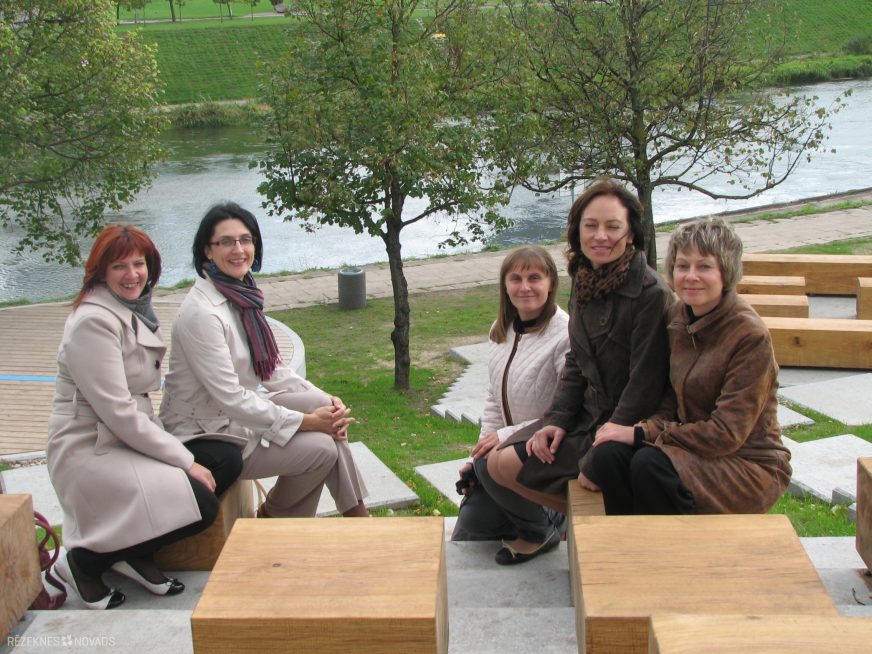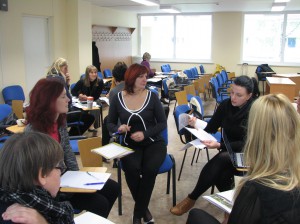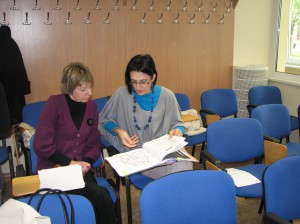Will we soon learn a foreign language in the mathematics hour?

“Citizens' mobility and multicultural society” is a modern reality in all European Union countries, including Latvia. Language knowledge is the one that gives people much greater opportunities in life, so the language is a norm at the moment, and new solutions are sought to make this process easier for pupils, ”says Maltas, Deputy Director of High School in the field of training and Sandra Schtekele.
In order to learn a new language learning system that aims to integrate foreign languages into different learning subjects, such as economics, mathematics, history and geography, Sandra Schtekele, along with two more Maltas secondary school teachers, Innu Mironov and Skaidritti Babri, participate in the European Union Nordplus Horizontal programme “Establishment of new approaches to language learning in the Nordic countries and the Baltic States” (English project name in abbreviation: DELA-NOBA).
 This year, IN the framework of the project, Maltas secondary school teachers participated in a survey, the results of which show that teachers are positively assessing the introduction of a new approach to language learning, but few of them would be willing to apply it to their work at this time.
This year, IN the framework of the project, Maltas secondary school teachers participated in a survey, the results of which show that teachers are positively assessing the introduction of a new approach to language learning, but few of them would be willing to apply it to their work at this time.
At the end of September, Maltas secondary school teachers. Stekele, I.Mironova and S.Babre attended an international project conference in Vilnius, with 21 educational staff from seven participating countries (Denmark, Latvia, Lithuania, Estonia, Iceland, Finland and Sweden). Research carried out by foreign colleagues also shows that teachers in the project Member States are carefully looking at the methodology for learning new languages.
 “This is likely to involve insecurity and lack of experience. Although many teachers know a number of languages, they have never been prompted to use them in their study. The new approach to language learning focuses on the need for teachers to develop these skills so that students can quickly and easily learn new languages,” says S. This tray.
“This is likely to involve insecurity and lack of experience. Although many teachers know a number of languages, they have never been prompted to use them in their study. The new approach to language learning focuses on the need for teachers to develop these skills so that students can quickly and easily learn new languages,” says S. This tray.
In order to achieve this, it is planned to develop new methodological learning materials on the integration of foreign languages into different learning subjects in the framework of the project, using the concept of plurilingvism. It provides for language to be used as a means of learning both the subject matter and the language at the same time. The materials developed in this school year are planned to be tested in practice or to be approved in Maltas secondary school.
“The materials of the project after their corroboration and placement on the project website could be interested in not only the teachers of Rezekne, but also the teachers of other Latvian schools,” is convinced. This tray. “The creation of new contacts with the teachers of the Nordic and Baltic countries is also particularly important, as it contributes to the successful exchange of experience,” the other benefits OF the PROJECT DELA-NOBA are indicated by the English-language teacher I.Mironov. In contrast, Latvian-language teacher S.Babre emphasizes that participation in international projects motivates English to learn English and try to try a plurilingvism approach in practice.
Žanna Savčenko
Rezekne District Municipalities
External communication organizer